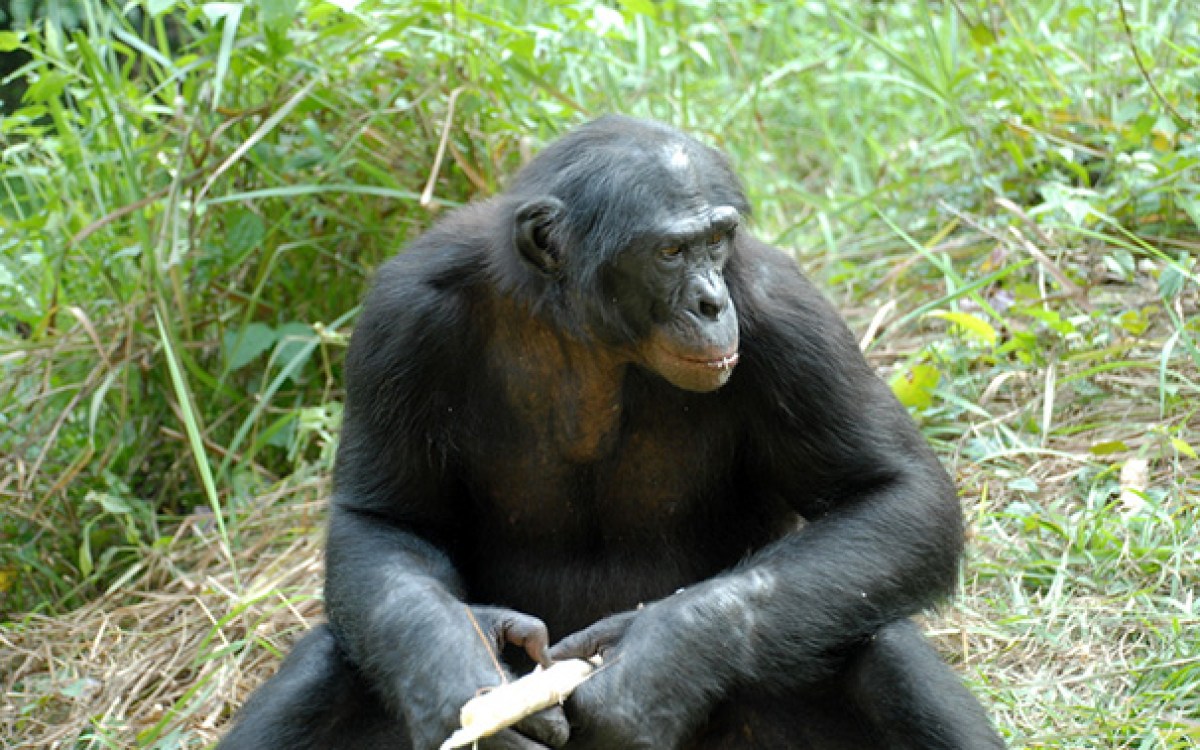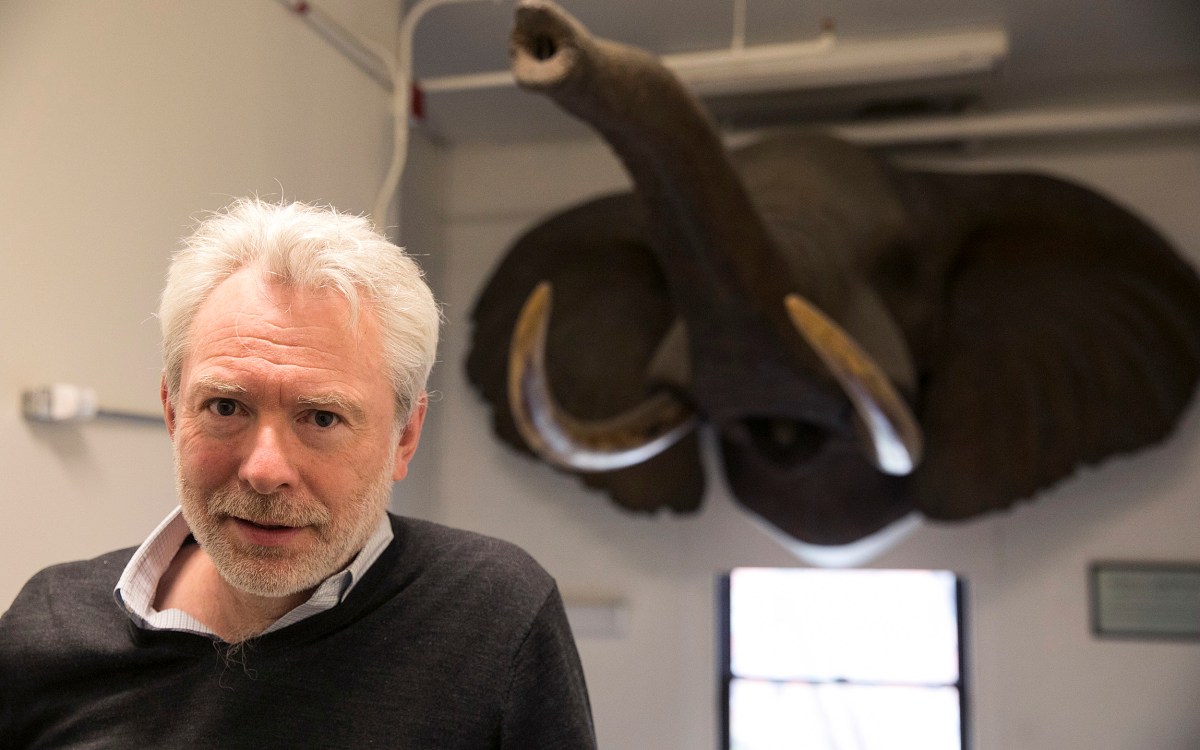
A new member of the faculty of the Department of Human and Evolutionary Biology, Martin Surbeck runs one of the few bonobo research sites in the world.
Kris Snibbe/Harvard Staff Photographer
New faculty: Martin Surbeck
His research suggests female bonobos are often group leaders; gender cooperation may be the key
Growing up, Martin Surbeck knew he wanted a career that involved working with animals, but didn’t imagine he’d go to the African rainforest to do it.
During college he conducted research on social insects and birds, but at graduation he got an unusual offer: to establish a bonobo research site in the Democratic Republic of the Congo and habituate the animals to the presence of researchers. And that set him on the path to his current career.
“These animals are fascinating to watch, and they’re interesting because we don’t know that much about them,” Surbeck said. “So I spent a year in the Congo, habituating bonobos to humans.”
Surbeck, who joined the Department of Human Evolutionary Biology as an assistant professor earlier this year, said his work has helped to fill in the blanks about the animals.
Often seen as less aggressive and more sexually active than chimps, bonobos are sometimes called the “hippie apes” — a name Surbeck says obscures many of the most interesting aspects of their society.
“Unlike in chimps, bonobo males hardly ever cooperate with each other,” he said. “But what we do see is females supporting each other very frequently. And that’s noteworthy because females don’t have their sisters there, so it’s mainly cooperation between unrelated individuals.”
In a study published in November in Hormones and Behavior, Surbeck and colleagues suggest that while same-sex encounters have been observed in bonobo males, they are far more common in females, and could serve as a way to cement those cooperative bonds.
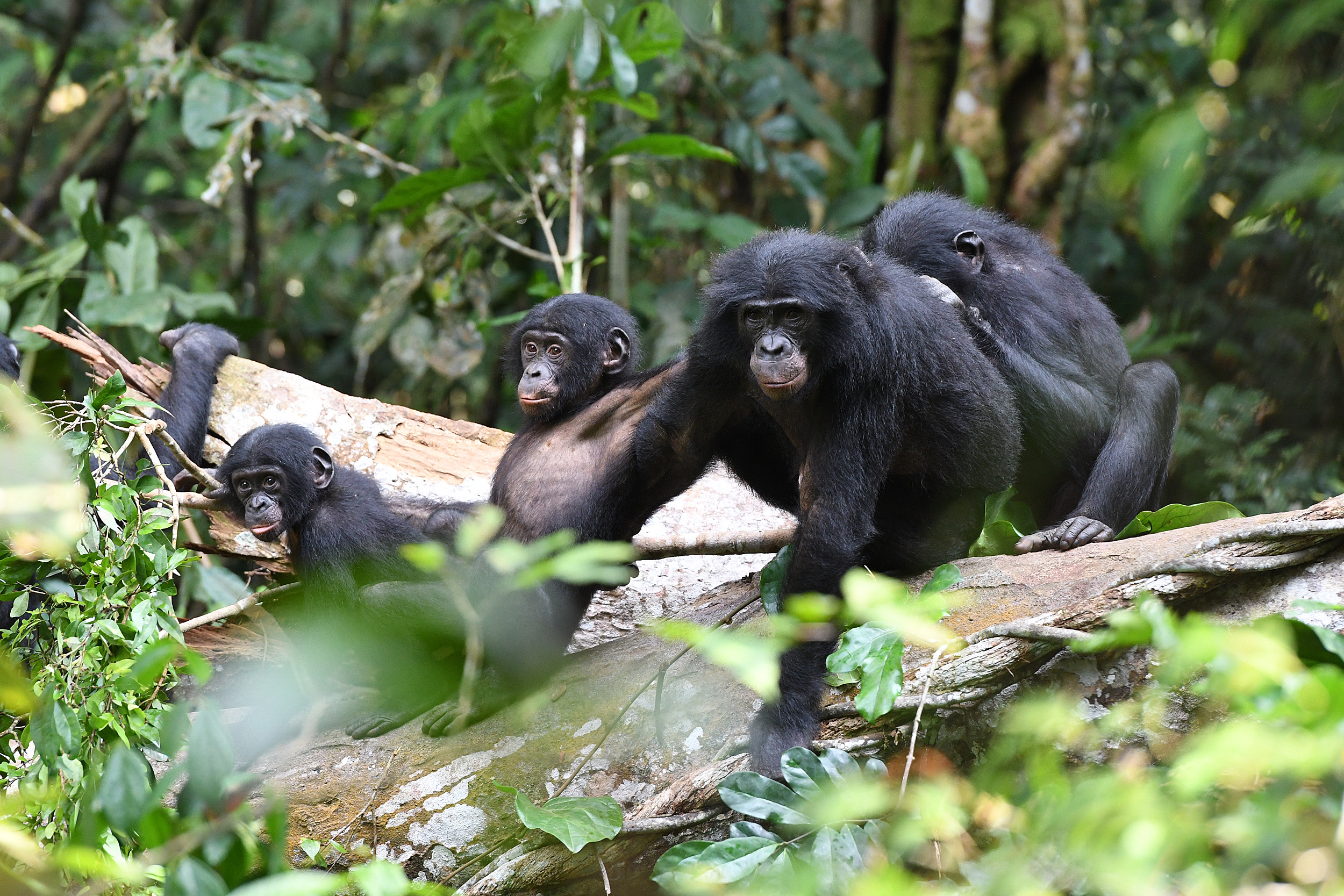
A bonobo mother and babies hang out together.
Photo by Martin Surbeck
“The females have this specific behavior where they rub their genitals against each other,” he said. “It occurs rather frequently, and it seems to be in situations of high tension — when there is potential conflict you see it happening.”
Following those encounters, Surbeck said, the team found increased levels of oxytocin in females. Similar increases were not seen following sexual encounters with males.
“Oxytocin is often associate with helping each other,” he said. “We know chimp males, when they go on patrols and attack other groups, they show high oxytocin levels, so it’s not just about sex; it appears to be about holding the group together.”
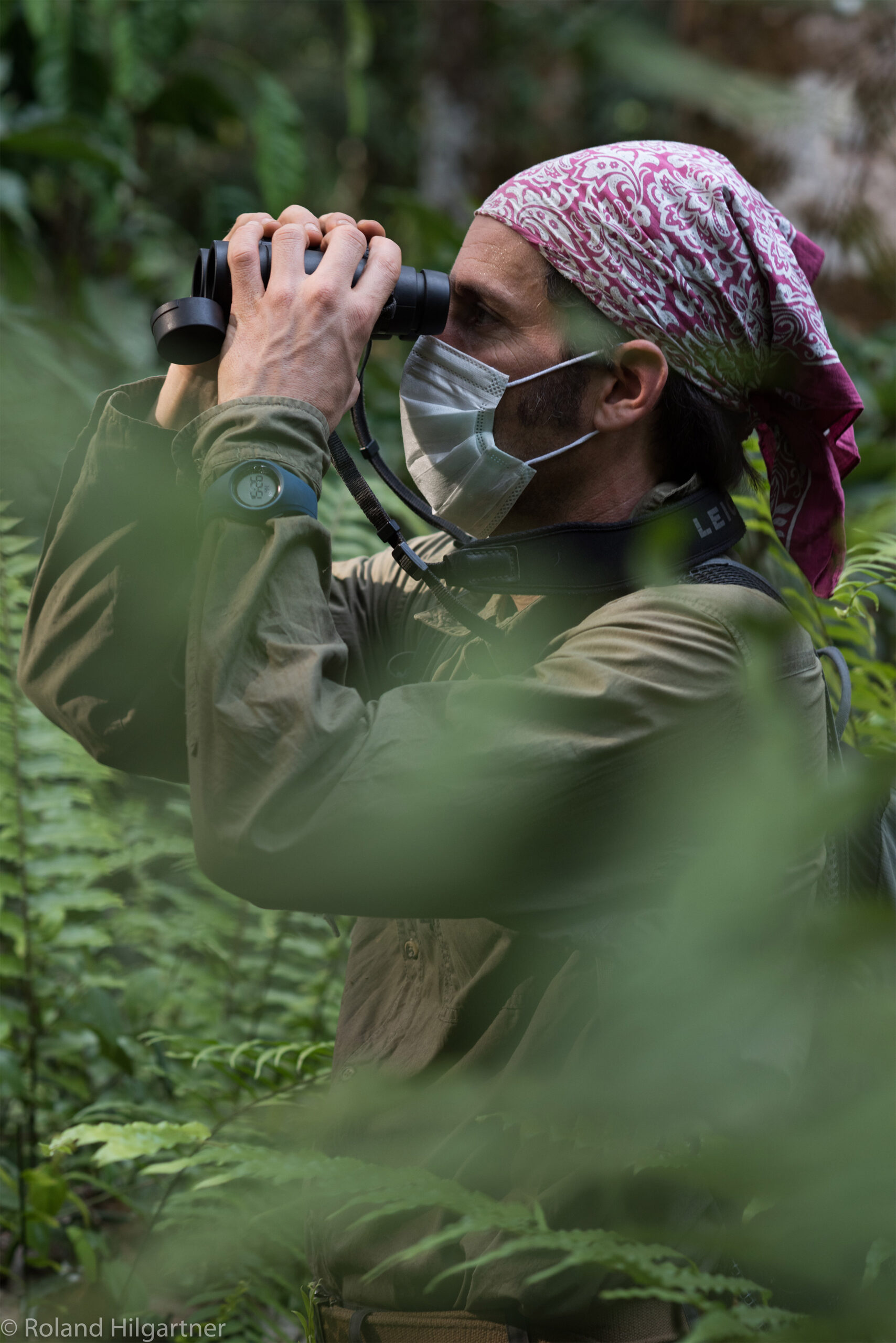
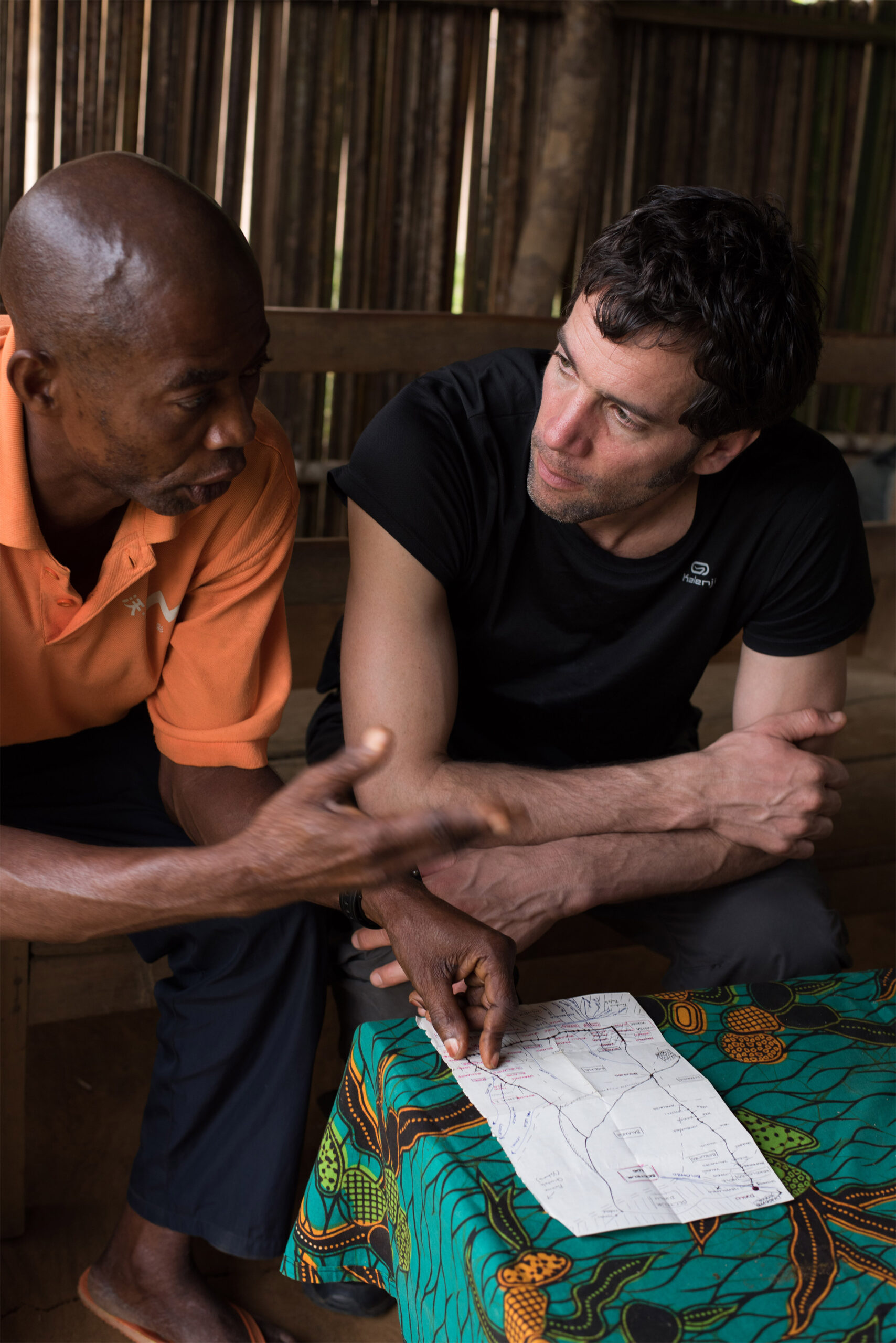
Surbeck scouts in the bushes. Surbeck discusses with a colleague.
Photos by Roland Hilgartner
Surbeck, however, warned against drawing direct lines between same-sex behavior in bonobos and in humans.
“This is a behavior which seems to have, in this species, a function in reinforcing cooperation,” he said. “One of the main things they cooperate in is to help each other in these coalitions to kick males out of the feeding trees.”
While there are still outstanding questions regarding the social structures among members of bonobo groups, Surbeck said there is evidence suggesting females are often the dominant or co-dominant individual in a group.
“There is an idea that maybe these female coalitions are a way for females to attain these high ranks,” he said. “They don’t help each other raise their young; they don’t seem to hunt together; they don’t defend the home range, but maybe as back-up it’s one thing that contributes to their high standing.”

The research site in the jungle.
Photo by Roland Hilgartner
There are still many questions left to answer about bonobos, but Surbeck said what keeps him coming back to the jungle year after year are those unique moments he spends with one of humankind’s closest cousins.
“It’s a very simple thing,” he said. “We follow three habituated bonobo communities on a daily basis … so we get up at about 4 a.m. and walk to the nest sites, which change every day, and walk with them. There are times when they go up in a tree, and you might not see anything for 90 minutes.
“But sometimes you walk with them alone along a path, and that is just beautiful,” he continued. “More emotionally than scientifically, those are the moments that are super-rewarding.”




